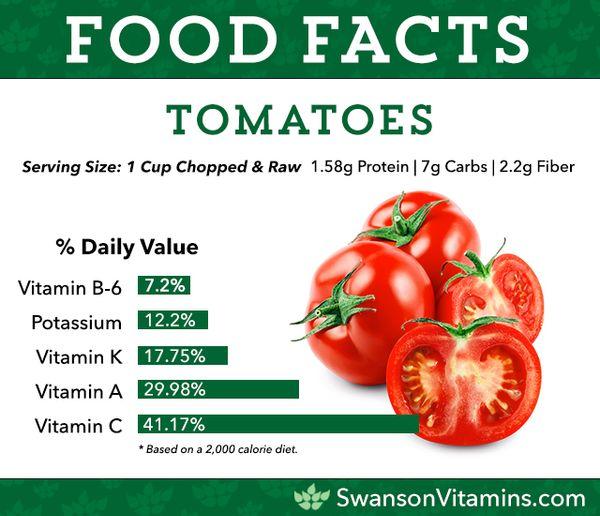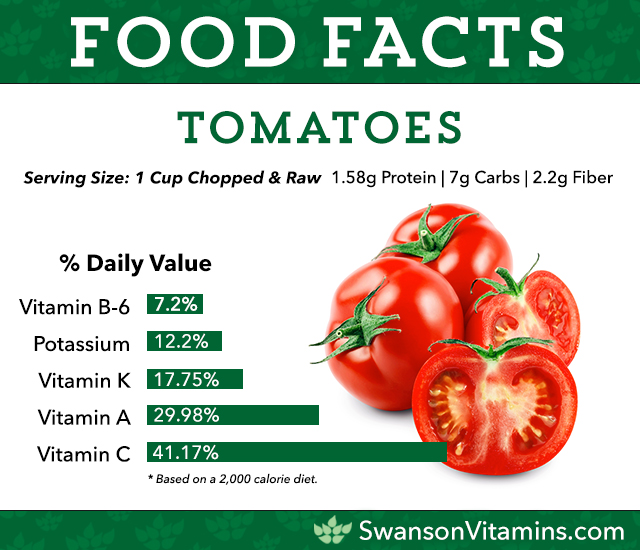With all the talk in the media about the latest “superfoods,” it’s easy to lose sight of all of the healthy foods you already eat in your day-to-day life. That’s right: you don’t need to add an obscure, exotic fruit or vegetable to your diet in order to be healthier. Regain the confidence in the bounty of foods you already eat. Here are nine common foods that are awesome for your health.
1Tomato
Tomatoes are a popular summer food with hundreds of varieties to suit different tastes. Even though they’re at their flavor and nutrition peak in the summer, tomatoes are available year-round. Include salsa, marinara and other sauces, canned tomatoes, soups and more, and there are many, many ways to eat tomatoes if you aren’t a fan of having them fresh.
Why Is it Healthy? Tomatoes are known for their outstanding antioxidant content. One antioxidant carotenoid found in tomatoes is lycopene, which has been shown to support bone health and more. Nutritionally, the humble tomato is an excellent source of vitamin C, biotin, molybdenum and vitamin K.
Tomatoes have also been studied for their positive effects on cardiovascular and skin health.
Tip: The redder the tomato, the more lycopene it contains. For peak nutrition, use fresh tomatoes when they’re in season!
2Yogurt
In the past few years, yogurt got an aggressive push into the healthy limelight... and it’s well-deserved! Millions of people start their days off with a healthy dose of yogurt now. But do you know why it’s healthy?
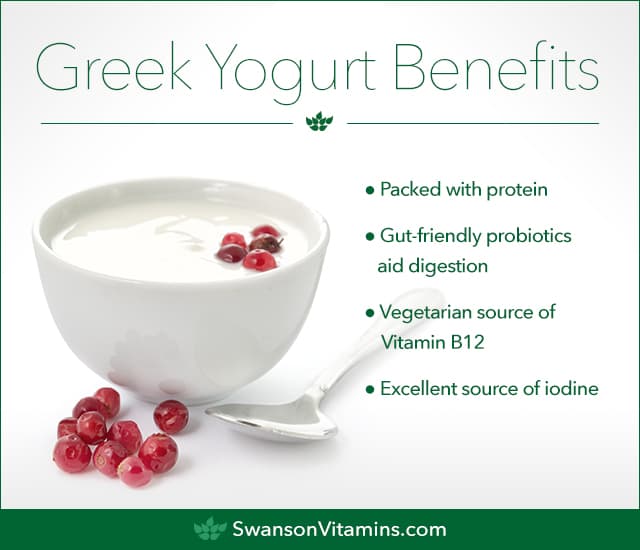
Why Is it Healthy? First, yogurt is made by adding probiotics to milk and/or cream to produce a thicker, fermented product. Probiotics are “friendly” bacteria that live in the digestive tract and are essential to maintaining a healthy digestive system. Hooray for healthy guts! Besides yogurt’s valuable probiotic benefits, it is an excellent source of calcium and protein.
Tip: Seek out Greek yogurt for the highest protein content, and be sure to read the nutrition facts to avoid added sugars and artificial sweeteners.
3Sweet Potato
Step aside, white potatoes; sweet potatoes are stealing the spotlight! Sweet potatoes have been gaining popularity because they are quite versatile in the kitchen: you can prepare them like a baked potato, slice them into fries or discs and roast them, dice them and use them in a hash, or even use cooked sweet potatoes in brownies and other baked goods. Because they are naturally sweet, they can be used in savory dishes or in desserts.
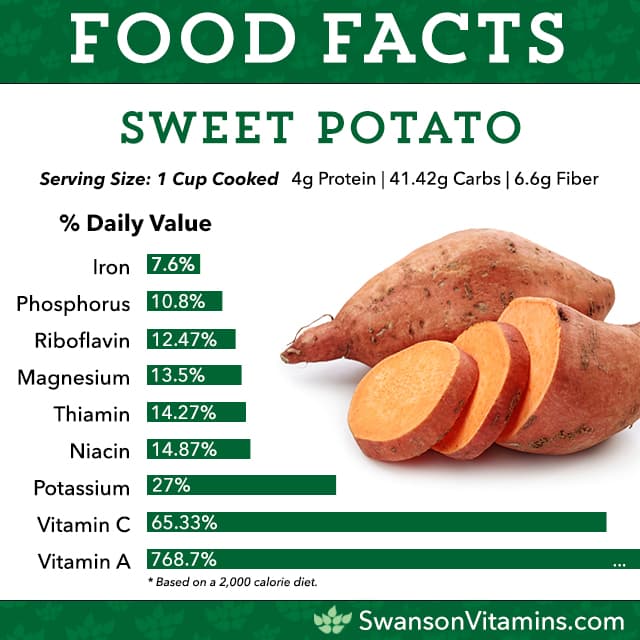
Why Is it Healthy? Sweet potatoes are packed with vitamins and minerals. They are rich in vitamins A, C, B5, B6 and E, potassium and manganese. One average-sized sweet potato will give you well over 100% of your daily vitamin A requirement!
Sweet potatoes come in a variety of colors ranging from the popular orange to purple, red and white. The antioxidant profile differs slightly based on the color with purple sweet potatoes containing the most antioxidants.
Tip: Different colored sweet potatoes have different flavors and textures. Try them all and find your favorite!
4Garlic
Garlic is a no-brainer kitchen staple that almost everyone knows how to cook with. It’s extremely simple to add to your diet since it comes in so many forms: fresh cloves, pastes, minced, powder and oils. If, for whatever reason, you don’t want to bother cooking with it, garlic is quite easy and affordable to take via garlic supplements.
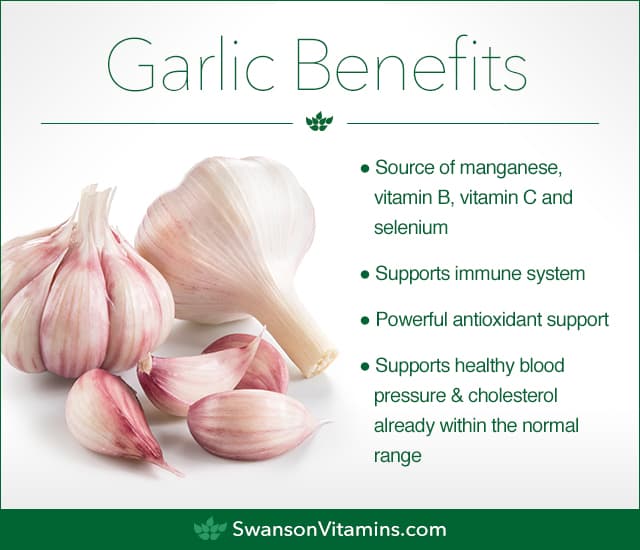
Why Is it Healthy? Garlic is very nutritious with a small amount of calories. It’s high in manganese, vitamins B6 and C, and selenium. Studies have shown that garlic can help bolster the immune system and reduce the length of sickness (including the common cold). Garlic is also high in antioxidants, which may have a positive impact on blood pressure and cholesterol.
Tip: For the best nutritional benefit, use fresh garlic whenever possible and add at the end of cooking. Don’t worry, fresh garlic bulbs last at least a month if stored properly!
5Onion
Onions are certainly a pantry staple in many households and adding onions to a recipe is a habit for many cooks. Since it is a habit, though, you may not realize the health-promoting bonus you’re adding to your dinner by including some diced onions.
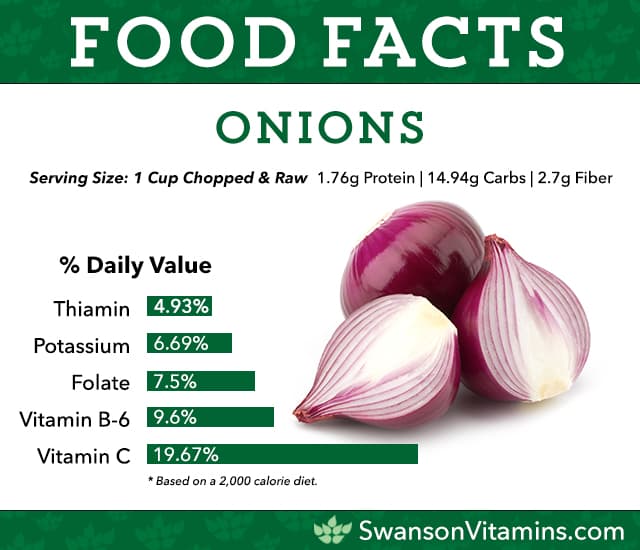
Why Is it Healthy? Onions are a good source of vitamin B6, potassium, manganese and folate. In addition, onions are high in the antioxidant quercetin. Studies have suggested that quercetin may support cardiovascular health and promote healthy energy levels. Dice those onions with a smile knowing that they’re doing your body good!
Tip: Don’t over-peel your onion! The flavonoid levels (including quercetin) are most concentrated in the outer flesh.
6Coconut Oil
While coconut oil has only recently become popular, it is ubiquitous in pantries now. This cooking oil is in practically every recipe on the Internet these days! With a smoke point of approximately 350° F, coconut oil can be safely used for medium-heat cooking.
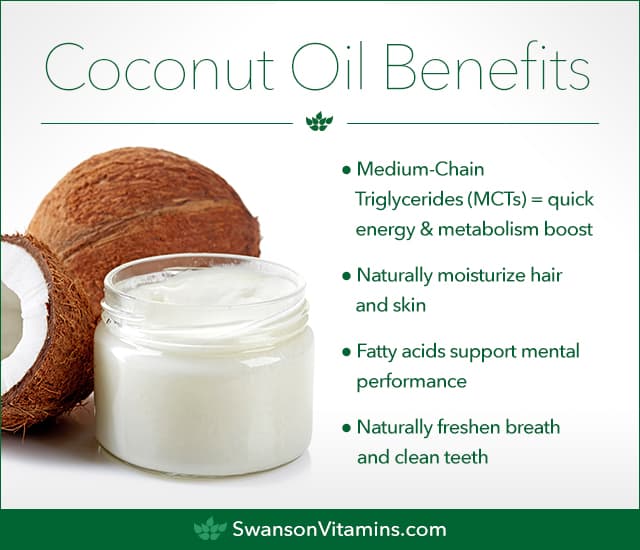
Why Is it Healthy? Coconut oil is high in saturated fats but don’t fear the fat! Most of it is in the form of medium-chain triglycerides (MCTs), which the body uses as a quick source of energy. These MCTs have been shown to increase energy expenditure compared to the same amount of calories from other fats... which means coconut oil can help you burn fat! The fatty acids in coconut oil can also boost brain performance.
In addition to the benefits of eating coconut oil, numerous people also use coconut oil for cosmetic purposes. It makes an excellent moisturizer and can protect hair from damage. Some also use it like a mouthwash in a technique called oil pulling. Oh, and there’s more! We’ve put together 50 popular uses for coconut oil in a separate post. Talk about useful.
Tip: Always look for organic, extra virgin coconut oil to avoid a product that’s processed.
7Strawberry
Ask someone what their favorite fruit is, and they’re likely to answer with strawberries. Everyone is familiar with them, and most people absolutely enjoy them... which is good news, because they’re great for you!
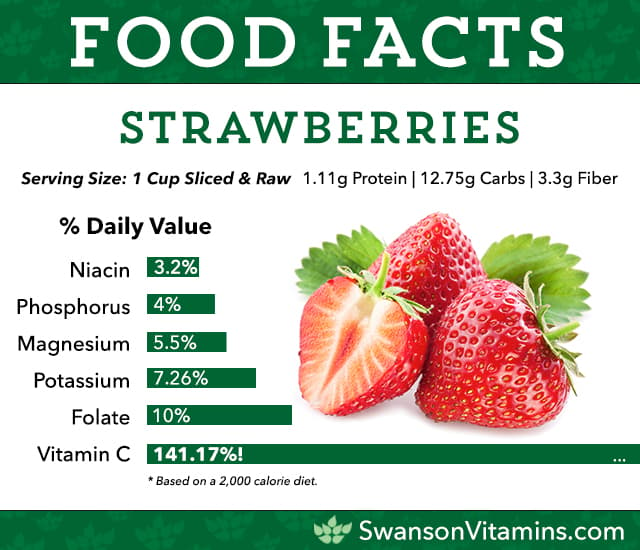
Why Is it Healthy? Like many fruits and vegetables, strawberries are a great source of vitamin C that also provides a decent dose of fiber, manganese and potassium. That vibrant red color means strawberries are also full of phytonutrients and antioxidants.
Tip: Since strawberries are so tasty, they’re easy to sneak in to any meal. Top your morning cereal, oatmeal, yogurt or toast with chopped strawberries. Enjoy them on their own as a snack. End the night with a square of chocolate and a strawberry.
8Carrot
If there’s a vegetable that even the vegetable haters can agree is pretty dang good, it’s carrots. Usually the first veggie to disappear from a veggie tray, carrots are an easy go-to vegetable. Carrots are popular raw, roasted, pickled, baked or boiled—there’s a preparation method out there for everyone.
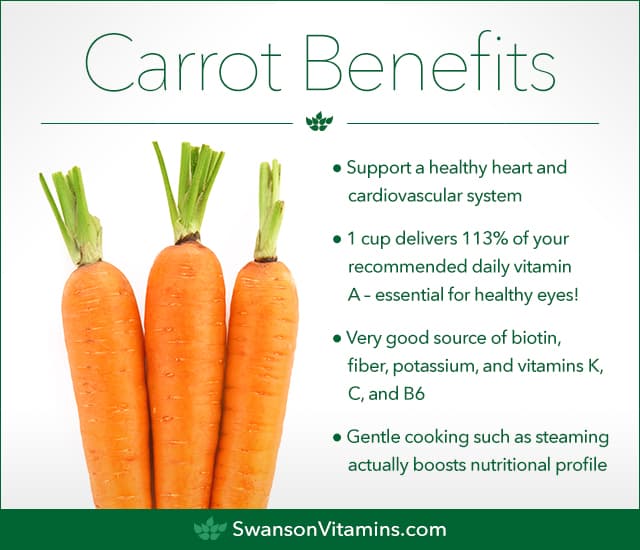
Why Is it Healthy? Carrots are a great source of vitamin A, biotin, vitamin K and potassium. Carrots are also high in the antioxidant lutein, which is important for eye health. They also have high levels of the antioxidant carotene.
Tip: You can eat the carrot tops, too! If you purchase your carrots with the greens attached, try adding them to salads or making a pesto. Waste not, want not.
9Broccoli
Like carrots, broccoli is well known in most households. Broccoli can be found fresh or frozen in most grocery stores, and many parents find themselves bargaining with their kids to get them to eat it. Fortunately for parents, warring with your children over the leftover broccoli on their plate isn’t for naught; broccoli has many health benefits!
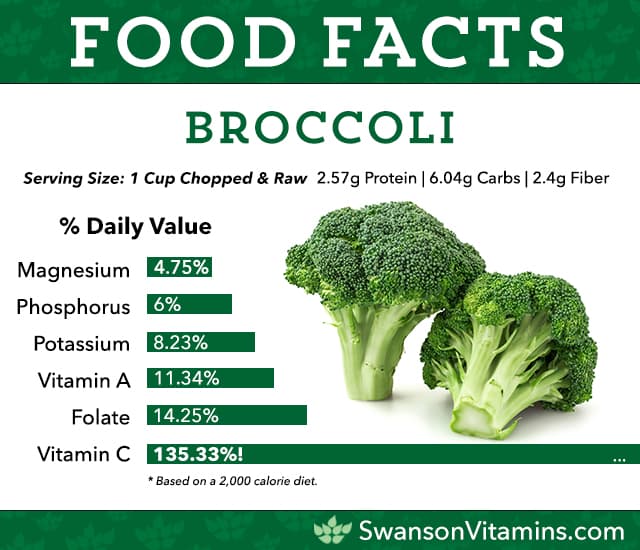
Why Is it Healthy? Most notably, broccoli has very high amounts of vitamin C. Just a half cup of raw broccoli delivers 70% of your recommended daily intake! There’s more good news, too. Broccoli has high amounts of vitamin K1, folate, potassium, manganese, iron and multiple antioxidants.
Tip: Fresh broccoli should be eaten within a few days of buying or picking for the best flavor and nutrition. If you can’t use it within a few days, blanch it and freeze for up to 12 months.
Sources:
- Tomatoes: http://authoritynutrition.com/foods/tomatoes/
- Sweet Potatoes: http://authoritynutrition.com/foods/sweet-potatoes/
- Onions: http://nutritiondata.self.com/facts/vegetables-and-vegetable-products/2501/2 & https://www.onions-usa.org/all-about-onions/onion-health-research
- Strawberries: http://www.medicalnewstoday.com/articles/271285.php & http://www.bbcgoodfood.com/howto/guide/ingredient-focus-strawberries
- Yogurt: http://www.healthyeating.org/Healthy-Eating/All-Star-Foods/Milk-Dairy/Article-Viewer/Article/85/health-benefits-of-yogurt.aspx
- Garlic: http://www.ncbi.nlm.nih.gov/pubmed/22280901 & http://www.ncbi.nlm.nih.gov/pubmed/11238796
- Coconut Oil: http://www.ncbi.nlm.nih.gov/pubmed/15123336 & http://www.ncbi.nlm.nih.gov/pubmed/12715094 & http://www.ncbi.nlm.nih.gov/pubmed/3532757
- Carrots: http://authoritynutrition.com/foods/carrots/
- Broccoli: http://authoritynutrition.com/foods/broccoli/
